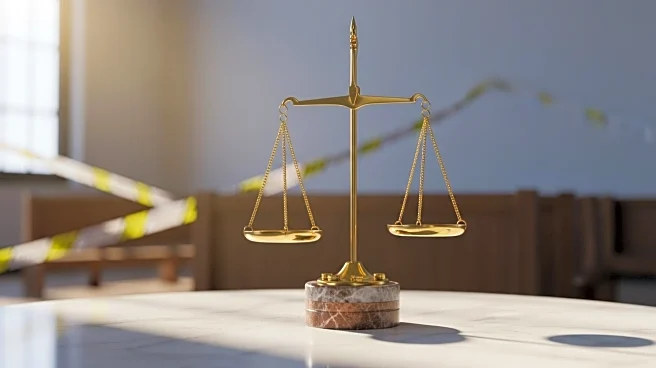What is the story about?
What's Happening?
Nicolas Sarkozy, the former President of France, has been sentenced to five years in prison following his conviction for criminal conspiracy. The charges stem from allegations that Sarkozy financed his 2007 presidential campaign with funds from Libya in exchange for diplomatic favors. Despite his intention to appeal the conviction, Sarkozy is expected to serve time in La Santé prison in Paris, potentially in solitary confinement or the VIP wing reserved for high-profile inmates. This wing is designed for individuals whose safety might be compromised in the general population, including politicians and former police officers.
Why It's Important?
Sarkozy's imprisonment marks a significant moment in French politics, highlighting issues of corruption and accountability at the highest levels of government. The case underscores the legal system's role in addressing political misconduct, potentially influencing public trust in political institutions. Sarkozy's conviction may impact his political legacy and the perception of his tenure as president. It also serves as a reminder of the ongoing scrutiny faced by political figures worldwide, emphasizing the importance of transparency and ethical conduct.
What's Next?
Sarkozy's appeal process will be closely watched, as it could alter the outcome of his sentence. The case may prompt discussions on political financing regulations and the need for reforms to prevent similar incidents. Sarkozy's imprisonment might also influence the political landscape in France, affecting the dynamics within his political party and the broader political discourse. Observers will be keen to see how this development impacts future elections and the public's engagement with political processes.
Beyond the Headlines
Sarkozy's case highlights the ethical challenges faced by political leaders and the potential consequences of misconduct. It raises questions about the influence of foreign entities in domestic politics and the measures needed to safeguard democratic processes. The situation also reflects broader cultural attitudes towards political accountability and the expectations placed on public officials.

















